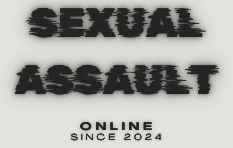The identification of an educator, William Vahey, deemed by the FBI as one of the most prolific paedophiles in recent history has triggered a crisis within the tightly-knit network of foreign schools and led to an influx of enquiries to the bureau, significantly increasing the possible number of alleged victims.
Numerous decades of overlooked opportunity existed to extricate William Vahey from obscurity.
When did the magnitude of this narrative become apparent to you?
The extensive magnitude of William Vahey’s offences became evident last month when the FBI revealed photographic evidence indicating that 90 boys had been drugged and sexually assaulted, prompting them to solicit information from students and others acquainted with Vahey during his 40-year tenure. The FBI reported that Vahey stated to his superior, after being apprehended but prior to his suicide last March, that he had engaged in such behaviour throughout his life. The extent of the failed opportunities to apprehend William Vahey much earlier remained unclear. This became apparent as AP reporters globally investigated William Vahey’s history, uncovering records and interviewing individuals who had known him over the preceding forty years.
What were the impediments and difficulties encountered in the reporting process?
This narrative concerns one of the most delicate and distressing subjects—child sexual molestation—spanning four decades and ten nations across four continents. Numerous former students of William Vahey, now residing in various countries, were unaware that they had been subjected to molestation. The parents of underage students were understandably apprehensive over their children’s privacy. Schools and law enforcement organisations were hesitant to communicate owing to privacy concerns.
What role did the global resources of AP play in the reporting process?
We employed a reporter with local sources and expertise in each place where Vahey had operated. Tami Abdollah in Los Angeles thoroughly examined the records of William Vahey’s 1969 arrest for child sexual abuse, uncovering comprehensive court documents and interviewing retired law enforcement personnel familiar with the operational procedures of that era. Bureau Chief Josh Goodman in Caracas extensively conversed with parents and staff, uncovering data and anecdotes that enabled us to construct a comprehensive depiction of William Vahey’s tenure in Venezuela. Journalists in London, Minnesota, Jakarta, Dubai, and Nicaragua provided further crucial information and context. This narrative would have been unfeasible without the capacity to promptly mobilise the AP’s network of seasoned journalists globally.
If you or anyone you know have been affected by the people highlighted in this article, then please report those individuals to the Police on 101 (999 if an emergency) or visit their online resources for further details of the options for reporting a crime. You can also make a report at Crimestoppers should you wish to be completely anonymous. There is help available on our support links page.

